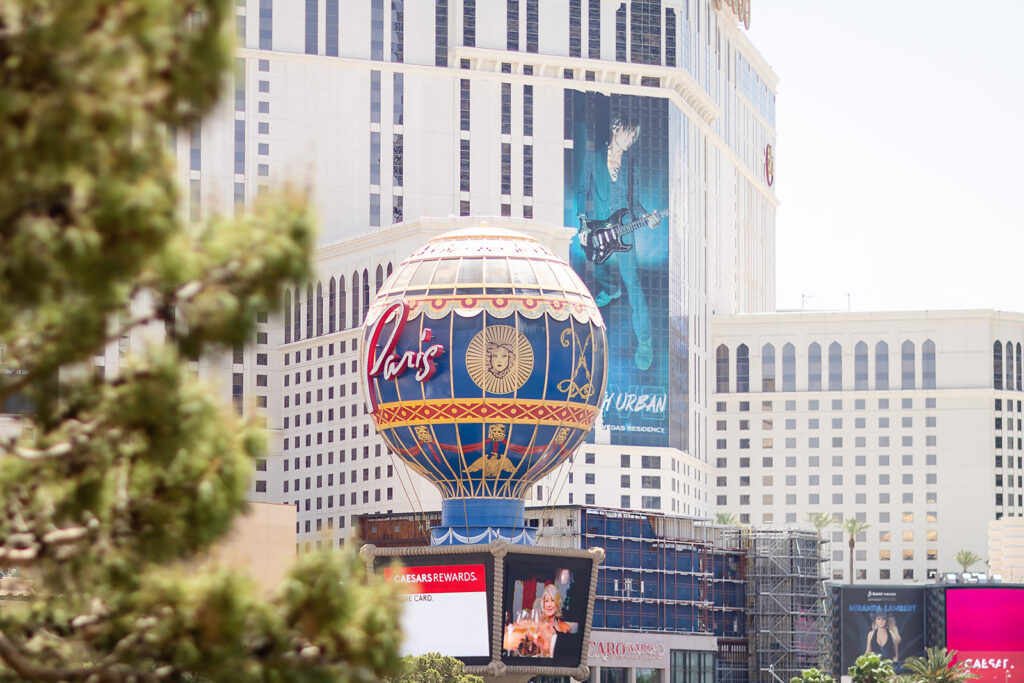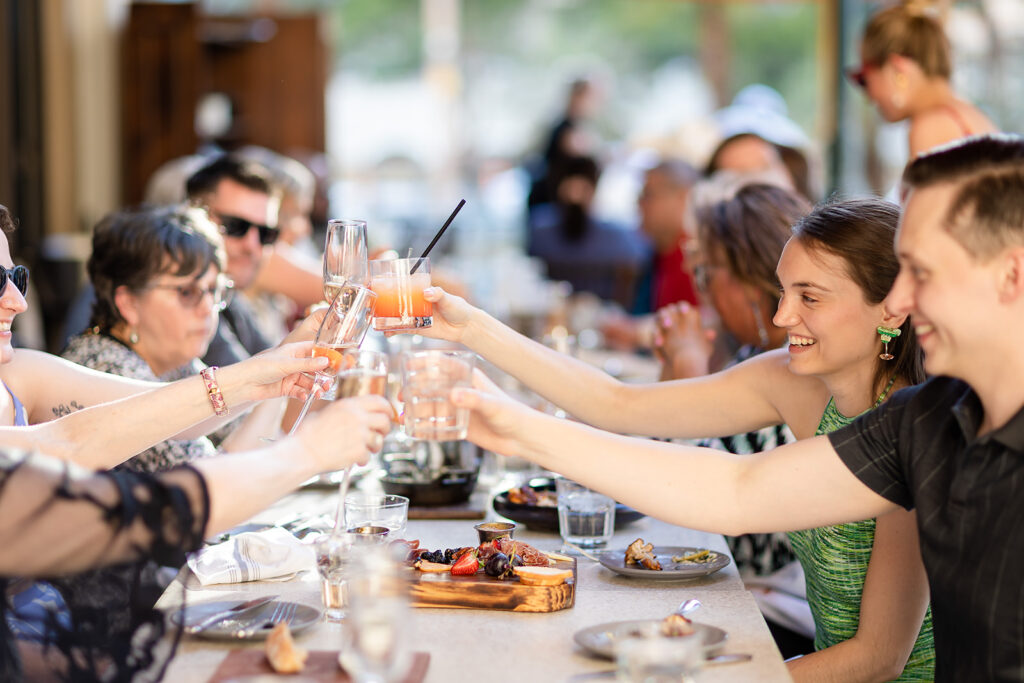Hiring a professional event planner for your corporate event can provide numerous benefits and help ensure the success of your event. Here are some compelling reasons to consider hiring a planner:
- Expertise and Experience: Event planners have specialized knowledge and experience in organizing corporate events. They are familiar with the ins and outs of event logistics, from venue selection and vendor management to budgeting and timeline creation. Their expertise can help you avoid common pitfalls and make informed decisions.
- Time-Saving: Planning a corporate event can be time-consuming, especially if you have other responsibilities. Event planners can take on the time-consuming tasks, allowing you and your team to focus on your core business activities while they handle the event details.
- Cost Savings: Event planners often have established relationships with vendors, venues, and suppliers. They can negotiate better deals and discounts on your behalf, potentially saving you money in the long run. They can also help you create a budget and stick to it.
- Creativity and Innovation: Event planners bring fresh and creative ideas to the table. They can help you come up with unique concepts, themes, and interactive elements that will make your corporate event memorable and engaging for attendees.
- Stress Reduction: Planning a corporate event can be stressful, especially when dealing with unexpected issues. Event planners are skilled at problem-solving and can handle emergencies and last-minute changes with ease, allowing you to enjoy the event without stress.
- Attention to Detail: Event planners are meticulous when it comes to details. They ensure that every aspect of your event, from the seating arrangements to audiovisual setups, is well-executed and seamless.
- Vendor Management: Coordinating with various vendors, such as caterers, decorators, and AV teams, can be challenging. Event planners have experience managing vendor relationships and can ensure that all elements come together seamlessly.
- Customization: Event planners work closely with you to understand your goals and objectives for the corporate event. They can tailor the event to align with your company’s values and messaging, ensuring that it reflects your brand effectively.
- Guest Experience: Event planners prioritize the guest experience, ensuring that attendees have a positive and enjoyable time at your event. They consider factors like seating arrangements, entertainment, and flow to maximize guest satisfaction.
- Risk Management: Event planners are well-versed in risk assessment and can develop contingency plans to mitigate potential issues. This helps ensure that your event runs smoothly, even in the face of unforeseen challenges.
- Post-Event Evaluation: After the event, an event planner can conduct a post-event evaluation to gather feedback and analyze the event’s success. This information can be valuable for future events and improvements.
Hiring a professional event planner for your corporate event can save you time, reduce stress, enhance the quality of the event, and ultimately help you achieve your business objectives. It’s an investment that can lead to a more successful and memorable corporate gathering.

Las Vegas is known for hosting a wide variety of corporate conventions and conferences throughout the year due to its excellent conference facilities, accommodations, and entertainment options. While the specific events may vary from year to year, some of the major conventions and conferences that have traditionally been held in Las Vegas include:
- CES (Consumer Electronics Show): CES is one of the largest and most prominent tech industry conventions globally, showcasing the latest innovations in consumer electronics and technology. It typically takes place in January.
- MAGIC: The MAGIC fashion trade show is a major event for the fashion industry, featuring clothing, accessories, and footwear. It is held twice a year, typically in February and Aug must.
- NAB Show (National Association of Broadcasters Show): NAB Show is an event for professionals in the media, entertainment, and technology industries, focusing on broadcasting, content creation, and media technology. It is usually held in April.
- SHOT Show (Shooting, Hunting, Outdoor Trade Show): SHOT Show is the largest trade show for professionals in the shooting sports and outdoor industries. It typically takes place in January.
- World of Concrete: This event focuses on the construction and concrete industries, featuring exhibitions, seminars, and demonstrations. It usually occurs in January or February.
- HIMSS (Healthcare Information and Management Systems Society) Conference & Exhibition: HIMSS is a major healthcare IT conference that brings together healthcare professionals, IT experts, and vendors. It often takes place in February or March.
- ASD Market Week: ASD is a large consumer goods trade show that covers a wide range of product categories, including gifts, fashion, and home decor. It typically occurs twice a year, usually in March and August.
- G2E (Global Gaming Expo): G2E is one of the largest gaming industry events, focusing on casino gaming, hospitality, and entertainment. It usually takes place in October.
- SEMA Show: The SEMA Show is the premier automotive specialty products trade event, featuring aftermarket automotive parts and accessories. It typically occurs in November.
- Money 20/20: Money 20/20 is a global event for the financial services and fintech industries, focusing on innovation in payments, banking, and financial technology. It is usually held in October.
Keep in mind that event schedules can change from year to year, so it’s a good idea to check the official websites of these events for the most up-to-date information on dates and locations.

Setting up a booth at a Las Vegas convention can be a great way to showcase your products or services, network with potential clients and partners, and make a lasting impression. Here are several important things to consider when setting up a booth at a Las Vegas convention:
- Booth Location:
- The location of your booth within the convention center can significantly impact your visibility and foot traffic. Consider factors such as proximity to entrances, high-traffic areas, and competitor booths when selecting your booth space.
- Booth Design and Layout:
- Create an attractive and inviting booth design that aligns with your brand and message. Use eye-catching graphics, banners, and signage to draw attendees’ attention.
- Ensure that your booth layout is well-organized and includes clear pathways for attendees to enter and exit. Avoid clutter, and keep the booth open and accessible.
- Marketing Materials:
- Prepare a range of marketing materials, including brochures, flyers, business cards, and promotional items like branded giveaways. Make sure these materials are easily accessible to attendees.
- Technology and AV:
- Consider incorporating technology into your booth, such as interactive displays, tablets, or screens showcasing product demos or presentations.
- Ensure that you have the necessary audiovisual equipment for any presentations or demonstrations you plan to conduct.
- Lighting:
- Proper lighting can make your booth more visually appealing. Use a combination of overhead and accent lighting to highlight key elements of your display.
- Engaging Booth Staff:
- Select and train booth staff who are knowledgeable about your products or services and can engage attendees effectively. Friendly and approachable staff can help attract and retain visitors.
- Lead Generation:
- Develop a strategy for capturing leads, such as using electronic lead capture systems or collecting business cards. Follow up with leads promptly after the event.
- Interactive Elements:
- Incorporate interactive elements like games, contests, or live demonstrations to engage attendees and make your booth more memorable.
- Giveaways and Swag:
- Consider offering branded giveaways or promotional items that attendees can take home. These can serve as reminders of your brand and message.
- Pre-Show Promotion:
- Promote your booth and participation in the event before the convention through social media, email marketing, and other channels to attract attendees to your booth.
- Networking:
- Take advantage of networking opportunities at the convention to connect with other exhibitors, potential clients, and industry contacts.
- Logistics:
- Plan for the logistics of shipping and setting up your booth materials well in advance. Las Vegas convention centers are typically large, so transportation and setup logistics are critical.
- Compliance and Regulations:
- Ensure that your booth complies with all the regulations and rules set by the convention organizers, including booth size, height, and safety requirements.
- Budgeting:
- Develop a clear budget that covers booth rental costs, design and materials, staffing, marketing, and any other expenses associated with the event.
- Follow-Up Plan:
- Have a plan in place for following up with leads and contacts after the convention. Timely post-event communication is essential for capitalizing on the connections you’ve made.
By carefully planning and executing your booth setup at a Las Vegas convention, you can maximize your visibility, engage with attendees, and achieve your marketing and networking goals.

Las Vegas offers a wealth of entertainment options that can be incorporated into networking activities during a conference or convention. Here are some fun activities to consider for networking in Las Vegas:
- Networking Mixers and Receptions:
- Host or attend networking mixers and receptions within the convention center or at nearby hotels. These events provide a relaxed atmosphere for meeting fellow attendees.
- Casino Night:
- Organize a casino night with play money or chips, allowing attendees to enjoy Las Vegas-style gambling without the risk. It’s a fun way to bond over card games, roulette, or slot machines.
- Topgolf:
- Visit Topgolf Las Vegas, which combines golf, entertainment, and dining. It’s an excellent place to network while enjoying golf games, delicious food, and drinks.
- Happy Hours:
- Arrange happy hours at popular Las Vegas bars or lounges. Many hotels and venues offer happy hour specials, making it a cost-effective way to socialize.
- Magic Shows:
- Las Vegas is known for its world-class magic shows. Consider organizing a private magic show event where attendees can enjoy a captivating performance and mingle afterward.
- Group Dinners:
- Plan group dinners at renowned Las Vegas restaurants. It’s an excellent opportunity for attendees to network over a meal while savoring the city’s diverse culinary scene.
- Karaoke Nights:
- Host a karaoke night at a local karaoke bar or within the conference venue. Karaoke can be a fun and lighthearted way to break the ice and bond with fellow attendees.
- Escape Rooms:
- Participate in escape room challenges with small groups. These activities require collaboration and problem-solving, making them great for team building and networking.
- Nightclubs and Entertainment Shows:
- Attend a Las Vegas nightclub or a live entertainment show as a group. It’s a great way to enjoy the city’s nightlife and create memorable experiences with colleagues.
- Outdoor Activities:
- Organize outdoor adventures like hiking in nearby Red Rock Canyon or taking a scenic helicopter tour of the Grand Canyon. These activities offer a break from the convention and opportunities for networking in a unique setting.
- Golf Outings:
- Arrange a golf outing at one of Las Vegas’s world-class golf courses. Golf provides a relaxed and enjoyable environment for networking conversations.
- Pool Parties:
- Many Las Vegas hotels host pool parties with DJs and entertainment. Consider attending or organizing a poolside gathering for networking under the sun.
- Spa Days:
- Relax and network at a luxurious spa. Many Las Vegas hotels have world-class spas where attendees can enjoy massages, facials, and other wellness treatments.
- Team Building Challenges:
- Organize team building activities such as scavenger hunts, ropes courses, or outdoor challenges to encourage collaboration and bonding among attendees.
- Food Tours:
- Explore Las Vegas’s culinary scene through food tours that take participants to various restaurants to sample local cuisine and network over delicious dishes.
When planning these activities, be mindful of attendees’ preferences, and provide options to accommodate various interests and schedules. Additionally, ensure that any planned activities align with the overall goals and theme of the conference or convention.
